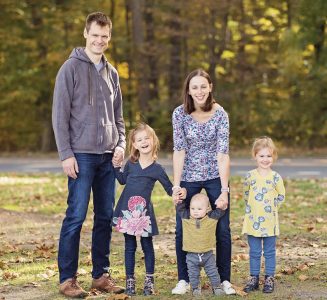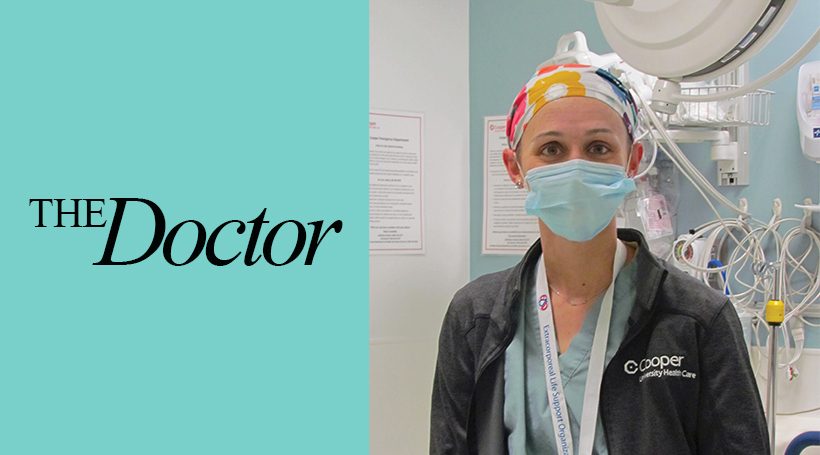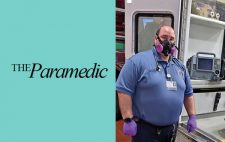When the first patients with COVID-19 started showing up in early March, Emily Damuth, a critical care intensivist with Cooper University Healthcare, says she felt lots of anxiety about contracting the disease herself, or passing it to her co-workers and family. As the surge wears on, though, that’s no longer anywhere near the top of her list of worries. She trusts that her protective equipment will do its job, and she’s got much, much bigger concerns.
“Seeing patients who are dying say goodbye to their families on video calls because they can’t be there – sometimes the spouses of very young patients – is so difficult, so emotional,” says Damuth, who is treating those whose Coronavirus symptoms have progressed to organ failure and extreme lung damage. “Some of my saddest moments in the ICU have been in the last few weeks. I’ve witnessed profound moments of grief.”

Christopher Jones and Emily Damuth with Leah, 6, Maggie, 5, and Blake, 1
Because the highly contagious nature of the virus has forced hospitals to ban visitors from the ICU, critical patients are dying without their families at their bedside. Instead, Damuth and other members of the ICU team hold up phones and tablets so loved ones can see and speak to patients.
Her job has never been an easy one, but now it comes with an added layer of difficulty: when a patient is afraid, or confused, or in pain, she’s not just their doctor anymore. Now she may be the only person who’s there to hold their hand.
“Emily has always been an incredibly compassionate person and physician,” says her husband Christopher Jones. “But the way she talks about her ICU patients has changed. It seems like she’s taking on that role of not just physician, but being their support person, and taking that role to heart. She’s speaking about people the way a family member would talk about someone who’s critically ill.”
Jones is also a doctor. He’s head of the division of clinical research in Cooper’s Emergency Medicine department. With fewer people coming to the ER for non-COVID-19-related ailments, he’s been taking his own shifts in the ICU. It’s a blessing, Damuth and Jones agree, to have a partner at home who understands exactly how your day went, and who has seen the tragedy firsthand.
Of course, there are moments of triumph, too. Some patients get better. Breathing tubes come out.
“We had our first ‘graduation’ from the ICU,” Damuth says. “We lined the halls as they were wheeled to a room in another part of the hospital to recuperate. There was music, and applause.”
There are other positives, as well: tragedy breeds ingenuity, and some creative systems have been put in place to help patients and their families. Damuth aided in pairing senior medical students with families. The students listen in over the phone as the ICU team does daily rounds with each patient. Immediately afterward, the student calls the family to communicate what’s going on.
“Otherwise, they’d be waiting hours for us to finish with every patient,” Damuth says.
In addition to long, difficult days at work, Jones and Damuth are also dealing with the same stressors as every other American family, including trying to make sure the oldest of their three children, a first grader, doesn’t fall behind academically. The family has received an enormous amount of support from their friends and community – Damuth says supporters “found every healthcare worker living in Haddonfield and delivered food” – and it’s helped them keep up the vital work.
“I haven’t been sleeping as well as I normally do, and I think that’s probably stress,” Jones says. “But for me, once I’m at work, I don’t feel stressed in the moment. I feel fortunate to have a job that feels meaningful.”
It isn’t easy, but it’s what they signed up for.
“This is what we’re trained to do, and to feel like you have a skillset that can be useful in a moment like this is invigorating,” Damuth says. “I think as emergency physicians, this is our calling. It doesn’t feel heroic. It just feels like we’re doing our job.”














